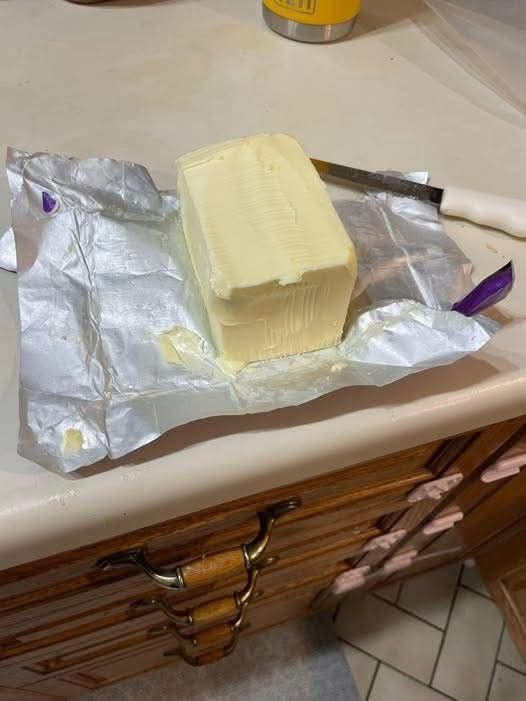Sharing living space with a roommate often involves negotiating small, everyday things—like how butter should be stored. If your roommate insists on leaving the butter on the counter because “that’s how they’ve always done it,” while you prefer it kept in the fridge, you’re not alone in this kitchen conundrum. Let’s break down the facts to help navigate the debate.
🧈 Is It Safe to Leave Butter Out?
The short answer is: Yes, under certain conditions.
Butter is primarily fat—about 80%—and contains very little water. This composition makes it a less hospitable environment for bacteria to grow compared to many other foods. Also, salted butter has even more staying power, thanks to the preservative qualities of salt.
✅ When It’s Generally Safe:
The butter is salted.
It’s stored in a butter dish with a lid or a covered crock.
The room temperature is below 21°C (70°F).
It’s consumed within a week or two.
⚠️ When It’s Riskier:
The butter is unsalted.
The kitchen is warm or humid.
The butter is exposed to air, light, or contaminants.
The butter is left out for weeks without use.
In warmer climates or kitchens that heat up a lot, even salted butter can go rancid more quickly.
👃 How to Tell If Butter Has Gone Bad:
Here are a few signs to watch for:
Smells off—like sour milk or cheese.
Tastes bitter or unusual.
Changes in color—turning darker or translucent.
Slimy or gritty texture.
👩🍳 How Butter Is Made – Step by Step
see continuation on next page
ADVERTISEMENT

